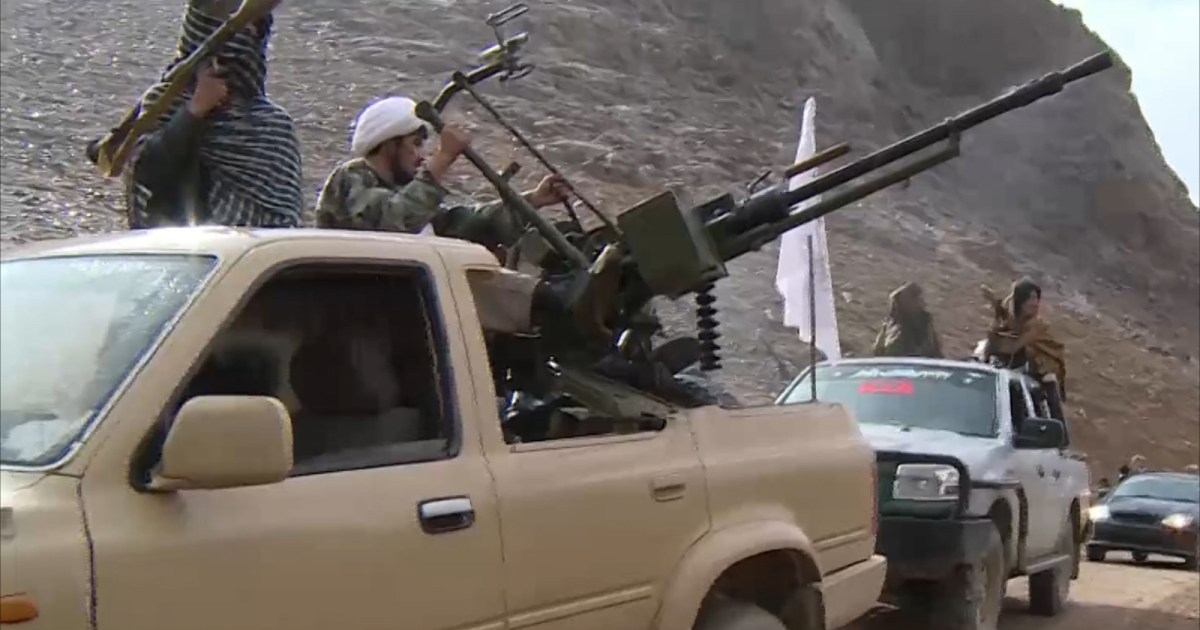A Taliban delegation held talks with Chinese officials in Beijing.
While the movement began collecting taxes in areas bordering Pakistan, the Kabul government insisted on a peaceful solution to the conflict, and warned Washington against turning Afghanistan into a rogue state.
The spokesman for the Political Bureau of the Taliban, Muhammad Naeem, announced that the deputy political affairs in the movement, Abdul Ghani Baradar, is visiting China at the head of a high-level delegation, at the official invitation of Beijing.
Naeem said that the Taliban delegation "assured China that Afghan territory will not be used against the security of any country."
The Chinese Foreign Ministry confirmed the meeting, noting that Minister Wang Yi asked his interlocutors to "draw a red line between them and all terrorist organizations such as the East Turkestan Islamic Movement" (METO).
Wang used his talks to criticize Washington, estimating that "the rapid withdrawal of US soldiers and NATO forces demonstrates the failure of US policy in Afghanistan," according to statements carried by his ministry.
He added that "the Taliban is a decisive political and military force in Afghanistan," expressing his hope that "it will play an important role in the peace, reconciliation and reconstruction process in Afghanistan."
Field and diplomatic
Field reports indicate that the Afghan forces show little resistance in confronting the Taliban and are no longer controlling only Kabul, state capitals, and main roads.
It is noteworthy that Taliban representatives recently held talks in Iran and Russia, and continue to negotiate with the government within the framework of the Doha Agreement.
The Taliban is intensifying its diplomatic efforts, in an effort to elicit international recognition, with the hope of assuming the reins of power again, despite its rapid military progress.
In Kabul, Afghan President Ashraf Ghani urged the international community to "review the Taliban's narrative in terms of their willingness and their supporters to adopt a political solution."
He said that there is no military solution to the conflict in Afghanistan, and that his country believes in a political solution.
"In terms of scale, scope and timing, we are facing an invasion unprecedented in the past 30 years," he warned in a speech on Wednesday.
"These are not the Taliban of the 20th century... but a translation of the relationship between transnational terrorist networks and transnational criminal organizations," he added.
The head of Afghanistan's reconciliation committee, Abdullah Abdullah, said that his country needs the cooperation of regional countries for the peace process.
For his part, US Secretary of State Anthony Blinken warned that Afghanistan would become a pariah state if the Taliban seized power by force and committed atrocities against its people, as he put it.
During his visit to India, Blinken said that Washington is still involved in Afghanistan, and provides assistance to the country in the areas of economic and security.
Message to merchants
In a related context, traders and exporters confirmed that the Afghan Taliban movement began collecting taxes on goods transported through a major border crossing with Pakistan.
The crossing between the northwestern Pakistani town of Chaman and the Spin Boldak district of Afghanistan fell to Taliban militants earlier this month.
The Taliban sent a 20-page document to the merchants registered in the Pakistan-Afghan Joint Chamber of Commerce and Industry showing them the rates of taxes to be paid.
"We received that list yesterday," said Chamber Chairman Zubair Mutiullah - from the southern city of Karachi.
Muti Ullah stated that Pakistani exporters are considering suspending shipments except for perishable foodstuffs to Afghanistan and Central Asian countries due to the development of the situation.
Mutiullah said that half of Pakistan's exports, worth about $2.5 billion annually, to Afghanistan pass through the Chaman crossing.

